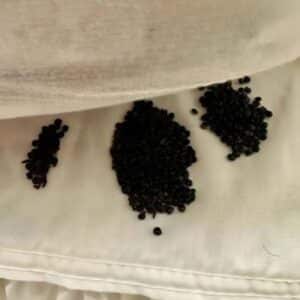“Why You Wake Up to Urinate — and How to Sleep Through the Night Again”
Waking up several times a night to use the bathroom can quietly wear down your peace. The fatigue, the broken rest, and the quiet worry about what your body is telling you — all of it begins to add up. But experts say the problem may not be your age at all. It might be your hydration habits. 💧
Urologists explain that how and when you drink water matters as much as how much you drink. It’s not about deprivation — it’s about rhythm and timing. When you honor your body’s rhythm, rest begins to return.
The Science Behind the Sleepless Nights
The medical term for waking up at night to urinate is nocturia, and it affects millions, especially adults over 50. Causes can include hormonal shifts, prostate changes, heart or kidney strain, excess salt, or certain medications.
But one of the most common — and easiest — causes to correct is fluid timing.
Experts recommend drinking around 70–80% of your daily water before 4 p.m., and gradually tapering after that. Avoid soups, teas, and fluids after 6 p.m., and take any necessary evening medications with just a few sips. This reduces bladder pressure while you sleep, allowing your body to rest and repair undisturbed.
Gentle Practices That Help
-
Elevate your legs for 30 minutes in the late afternoon. This simple act helps the body drain fluid that gathers in your lower limbs during the day — easing nighttime urination and swelling. 🔼
-
Watch your evening meals. After 5 p.m., avoid natural diuretics like cucumber, celery, watermelon, caffeine, alcohol, and salty foods. Choose lighter, grounding meals — grilled vegetables, lean proteins, or simple soups. 🍗🥗
Within a few days, many notice changes: deeper sleep, fewer awakenings, and a sense of inner calm that only true rest brings. ✨
When to Seek Help
If nocturia continues despite these adjustments, consult a urologist. It may indicate issues such as prostate enlargement, diabetes, or kidney strain. Your body’s signals are never random — they are communications, not inconveniences.
Reflection
The body is a vessel entrusted to us — a bridge between the outer and inner worlds. Its rhythms mirror the natural order: dawn for renewal, night for surrender. When we learn to align with that order — in how we eat, drink, and rest — we participate in harmony rather than resist it.
Sometimes healing begins not in the medicine we take, but in the gentleness with which we listen. 🌙





